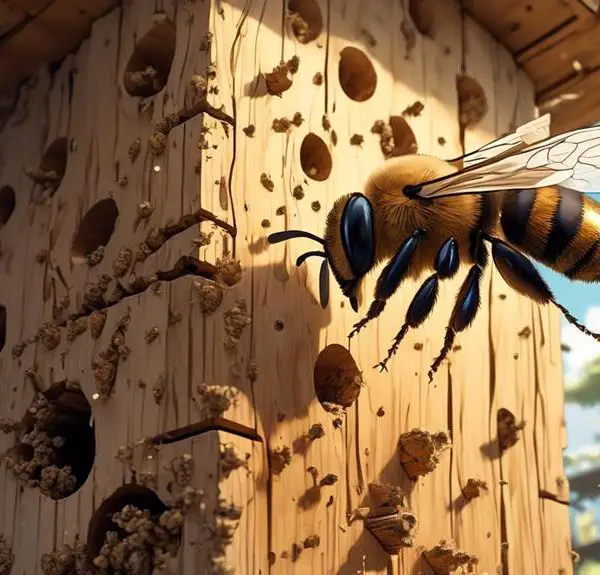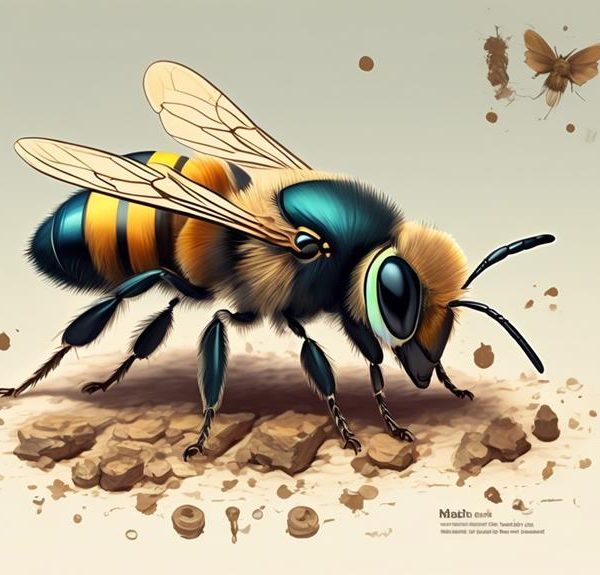Tackle the fascinating question of whether mason bees are territorial, delving into their unique habits and role in our ecosystem.
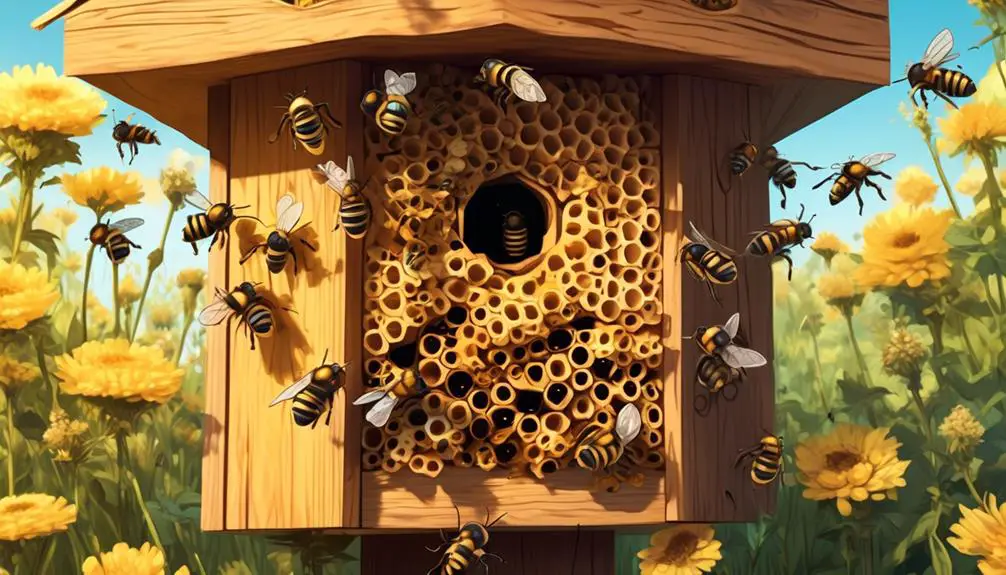
Are Mason Bees Territorial?
Did you know that there are over 140 species of mason bees in North America alone?
Now, you're probably wondering whether these industrious little creatures display territorial behavior, similar to some other bee species.
Well, it's not as simple as a yes or no answer. There's a myriad of factors to consider including their habitats, mating habits, and their unique roles in our ecosystem.
So, stick around, as we're about to explore the intriguing world of mason bees and their territorial tendencies.
Key Takeaways
- Mason Bees are solitary creatures that nest in small crevices or holes, often in wood or hollow stems.
- They exhibit territorial behavior by protecting their nesting spaces and competing for prime nesting spots.
- Mason Bees prefer spots with morning sun exposure and proximity to a mud source for nest construction.
- They do not display aggressive defense behaviors, but males can be mildly territorial during mating season.
Understanding Mason Bees
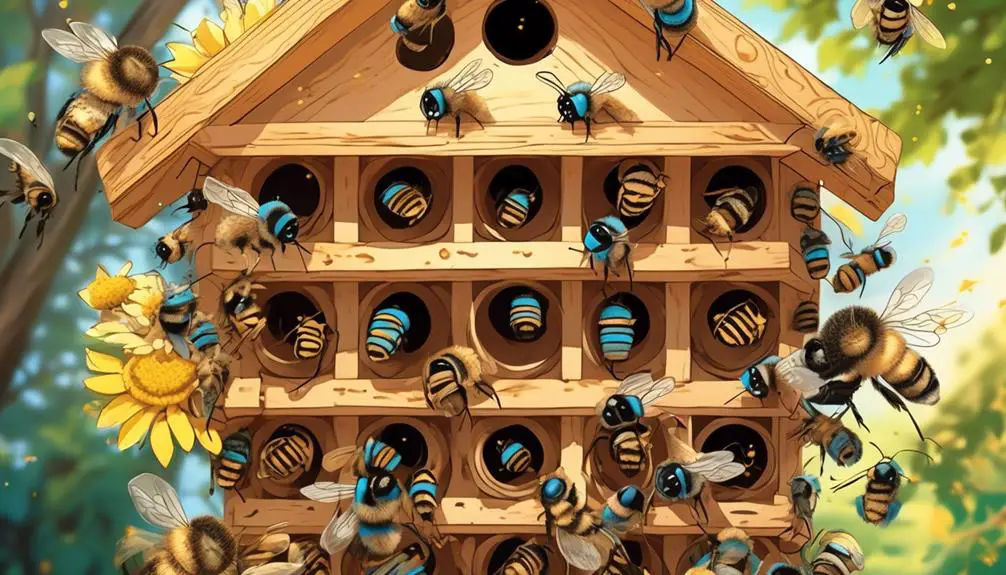
To truly grasp the nature of Mason Bees, you'll need to delve into their unique biology, habits, and the fascinating territorial behavior they display.
Unlike their honeybee counterparts, Mason Bees are solitary creatures. They don't live in hives; instead, they nest in tiny crevices or holes, often in wood or hollow stems. Each female is a queen, laying her eggs singularly in the cells she constructs with mud.
Mason Bees are non-aggressive and rarely sting, making them an ideal neighbor in your garden. They're diligent pollinators, with an ability to pollinate ten times more efficiently than honeybees. This efficiency is due to their peculiar 'belly-flopping' method of collecting pollen. Instead of storing pollen on their hind legs like honeybees, they collect it on their abdomen.
Their territorial behavior is intriguing. They don't defend their nests like other bees. However, they're protective of their nesting spaces, often returning to the same spot year after year. They also compete for prime nesting spaces, demonstrating a form of territoriality.
Understanding these behaviors helps you appreciate not only the role of Mason Bees in the ecosystem but also their individual quirks and idiosyncrasies.
Mason Bees Habitat Analysis
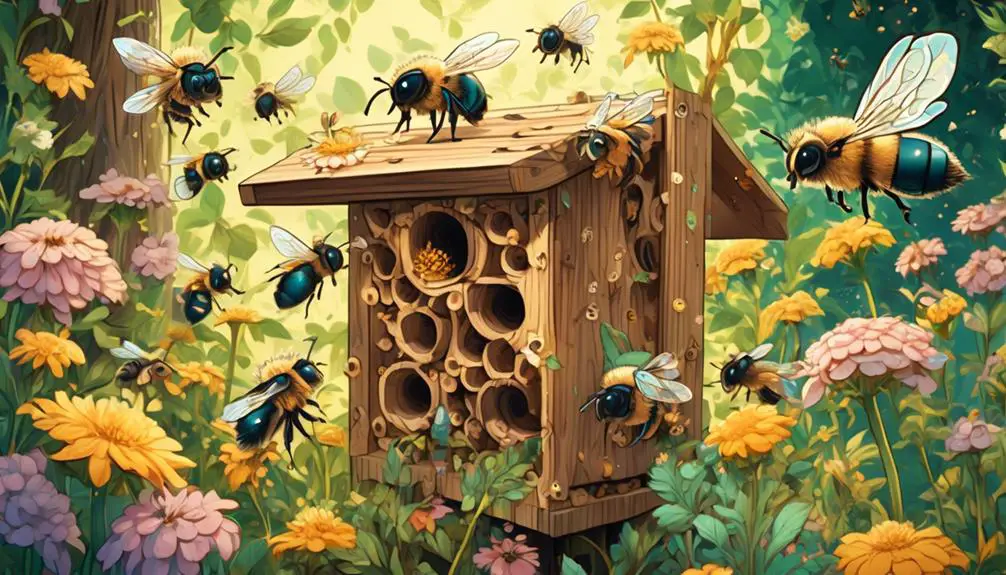
Building on our exploration of Mason Bees' territorial behavior, let's now examine their habitat preferences and analyze the environmental conditions that best support their lifecycle and pollination activities. Unlike honeybees, which prefer large, communal hives, Mason Bees are solitary creatures. They thrive in environments that provide ample nesting sites, such as wood piles, hollow stems, or bee hotels.
Analyzing their habitat, you'd find that they prefer spots with morning sun exposure to warm them up for their day of pollination. Proximity to a mud source is also crucial, as female mason bees use mud to construct their nests.
Preferred Habitat Features | Explanation |
|---|---|
Morning sun exposure | Warms the bees up for their day of pollination activity |
Proximity to mud source | Female bees use it to construct their nests |
In terms of floral preferences, they are generalists – they don't discriminate much between flower types, making them excellent pollinators. However, they are particularly drawn to fruit tree blossoms. So, if you're looking to attract these beneficial pollinators, consider these habitat conditions and create an inviting environment for them.
Territorial Traits of Bees
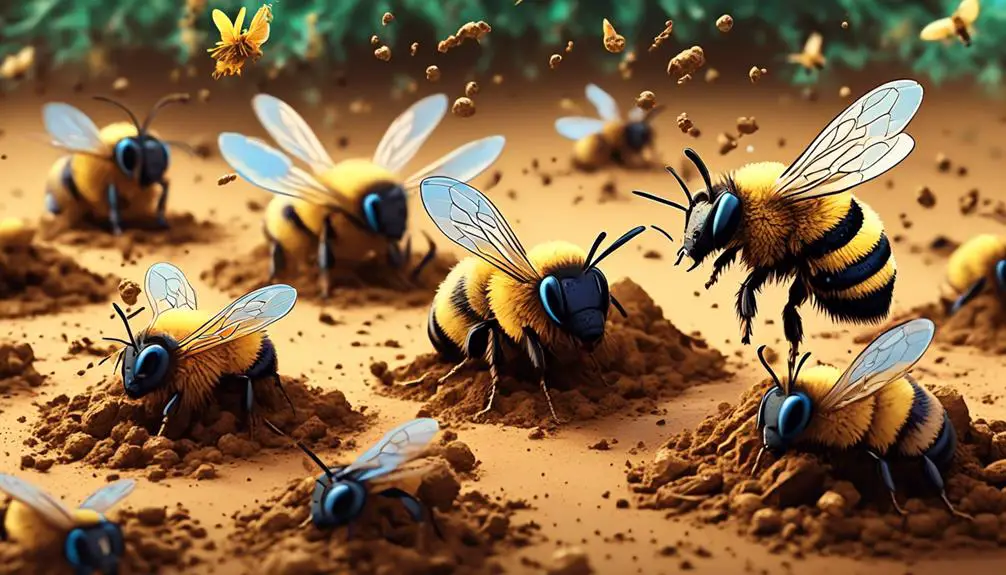
Diving into the territorial traits of Mason Bees, you'll observe that unlike their social bee counterparts, these solitary insects don't display aggressive defense behaviors or establish large territories. Instead, they're known for their non-confrontational nature, typically focusing more on their solitary nesting activities than on territorial defense.
You might wonder then, how do they define their territory? Primarily, their territorial boundaries are determined by their nesting sites, which they don't stray far from. They're preferential to small, tubular spaces, often reusing old holes in wood or tunnels in the ground.
Yet, it's worth noting that they're not completely devoid of territorial instincts. They might exhibit mild defensive behaviors when their nest is under a direct threat, but they don't engage in stinging humans unless provoked excessively.
Furthermore, when it comes to mating, males can be mildly territorial. They often hover around nesting sites, waiting for females to emerge. However, their territoriality doesn't extend to the point of fighting off rivals. It's more of a display to attract mates than a combative stance.
Are Mason Bees Possessive?
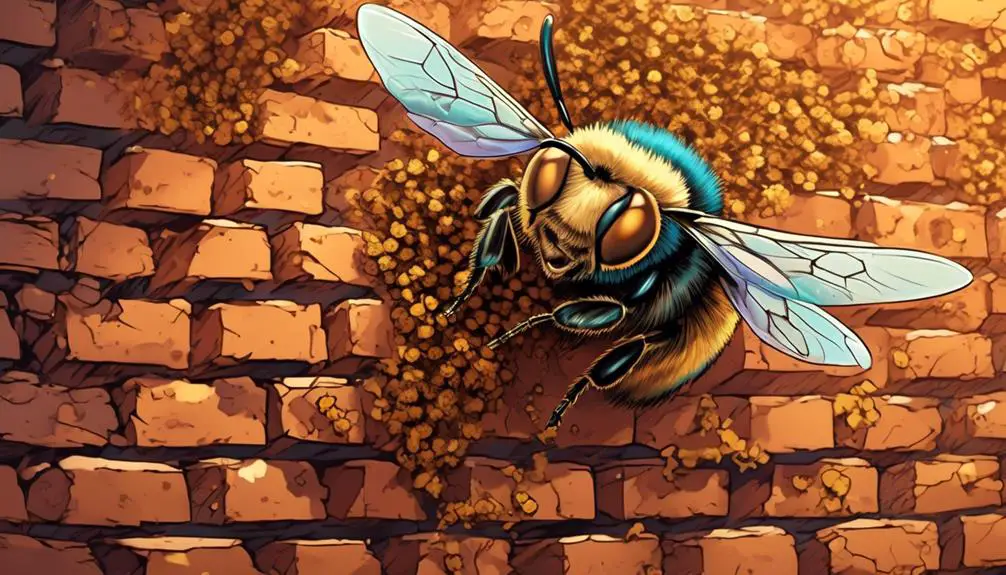
While you might assume that Mason Bees, with their solitary nesting habits, would be possessive over their chosen nesting sites, this is not typically the case. Unlike honeybees or wasps, which aggressively guard their hive, Mason Bees are non-aggressive and don't exhibit possessive behaviors.
However, it's important to note that Mason Bees do have a preference for certain types of nesting sites, and they will return to these sites year after year. This preference, while it might seem like possessiveness, is more akin to a strong homing instinct that guides the bees back to familiar environments.
Below is a table that further illustrates the differences between Mason Bees and other bee species:
Bee Type | Aggressiveness | Possessiveness | Homing Instinct |
|---|---|---|---|
Honeybee | High | High | Moderate |
Wasp | Very High | High | Moderate |
Mason Bee | Low | Low | High |
Impact on Ecosystem and Pollination
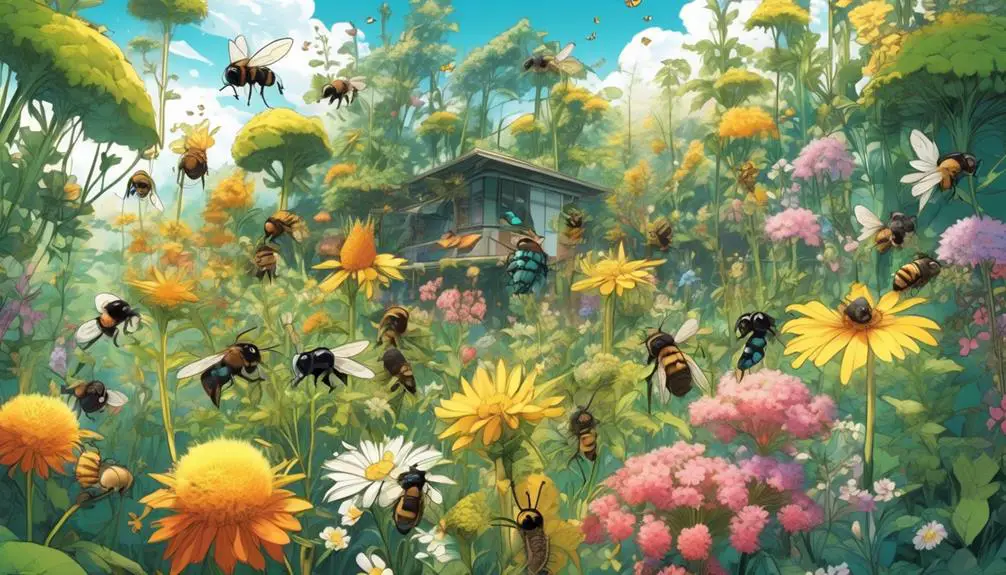
In examining the impact of Mason Bees on the ecosystem and pollination, you'll find that these bees play an essential role in maintaining biodiversity and supporting plant reproduction. Unlike honeybees that typically focus on a single plant species, Mason Bees are polylectic, meaning they gather pollen from a variety of plants. This feature, combined with their efficient pollen-carrying ability, enhances cross-pollination and genetic diversity among different plant species.
Their solitary nature is also beneficial to the ecosystem. Since they don't maintain hives like social bees, they use existing holes and gaps in wood or soil, aiding in decomposition and soil aeration. This behavior contributes to nutrient cycling and supports the overall health of the ecosystem.
You'll also find that they're incredibly industrious, with a single female Mason Bee doing the pollination work of around 100 honeybees. Their high efficiency and broad pollination patterns make them vital to the survival of various plant species, especially fruit-bearing trees.
Conclusion
In conclusion, mason bees are not territorial. Unlike some bee species, they do not stake claim over a particular area or aggressively defend their nests. These peaceful pollinators focus on gathering nectar and pollen, contributing significantly to our ecosystem's functioning.
So, don't worry about these bees causing trouble in your garden; they are likely busier helping your plants thrive. Analyzing their behavior further could provide rich insights into their beneficial role in pollination.

